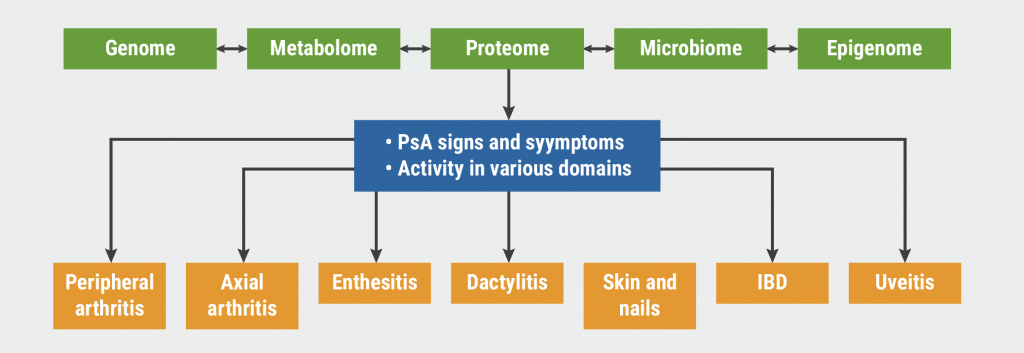Due to a higher prevalence of CV risk factors and disease-related characteristics such as systemic inflammation, patients with psoriatic arthritis (PsA) have a higher risk of developing a CV event than the general population. Although multiple algorithms exist that can estimate the CV risk for the general population, no such algorithm exists for patients with PsA. Existing algorithms underestimate the real CV risk of patients with PsA. This could be attributed to the fact that these algorithms do not include disease characteristics that can affect the CV prognosis of patients with PsA. Therefore, a carotid ultrasound should be done to correctly classify the CV risk of patients with PsA and identify those who would benefit from an opportune treatment.
The current cross-sectional, observational, comparative study included 75 patients (aged 40–75 years) who fulfilled the 2006 CASPAR criteria and 75 controls without PsA matched by age, sex, and comorbidities. The results were presented by Dr Natalia Guajardo-Jauregui (Autonomous University of Nuevo León, Mexico).
CV risk was evaluated according to 6 CV risk algorithms: Framingham Risk Score (FRS)-lipids, FRS-BMI, American College of Cardiology and American Heart Association Risk Algorithm (ASCVD), Systemic Coronary Risk Evaluation (SCORE), QRISK3, and Reynolds Risk Score (RRS).
Age and sex were similar in the 2 groups. The mean age was 54 years and 57.3% were women in both groups. The results indicated that the presence of carotid plaque was more prevalent in patients with PsA compared with healthy controls: 44.0% versus 26.7% (P=0.026). When comparing the CV risk reclassification to a higher risk category, a difference was found in 5/6 CV algorithms.
A CV risk reclassification to a higher risk category after carotid ultrasound and presence of carotid plaque was more prevalent in patients with PsA than in controls. Performing a carotid ultrasound as part of the CV evaluation of these patients is essential, argued Dr Guajardo-Jauregui, for CV risk algorithms are insufficient to identify patients who would benefit from an opportune treatment.
- Guajardo-Jauregui N. Cardiovascular risk reclassification according to traditional cardiovascular risk algorithms and a carotid ultrasound in Psoriatic Arthritis patients. Poster P9, 6th World Psoriasis & Psoriatic Arthritis Conference, 30 June–3 July 2021.
Copyright ©2021 Medicom Medical Publishers
Posted on
Previous Article
« Potential role of inflammation in cardiovascular comorbidity Next Article
Psoriatic arthritis: Guidelines and best practice »
« Potential role of inflammation in cardiovascular comorbidity Next Article
Psoriatic arthritis: Guidelines and best practice »
Related Articles
September 17, 2021
Axial involvement is critical in psoriatic arthritis

September 17, 2021
Psoriatic arthritis: Guidelines and best practice
February 4, 2020
Lowest risk of infection after therapy with an IL-12/IL-23 blocker
© 2024 Medicom Medical Publishers. All rights reserved. Terms and Conditions | Privacy Policy

